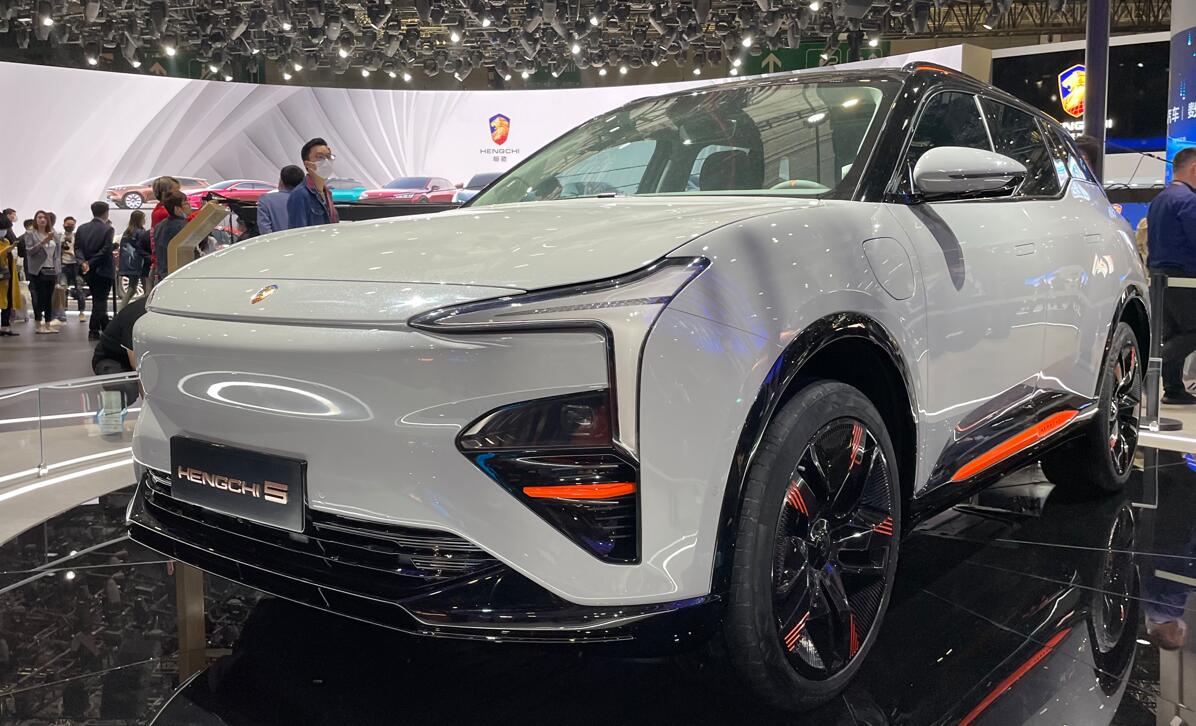Evergrande NEV has suspended mass production of its sole model, the Hengchi 5, due to a lack of sufficient new orders, according to Reuters.
(Image credit: CnEVPost)
Evergrande New Energy Vehicle Group (Evergrande NEV), the electric vehicle unit of China's Evergrande Group, has suspended mass production of its only model, the Hengchi 5, a Reuters report today said, citing two people familiar with the matter.
This is because there are not enough new orders for the SUV, the report said, adding that it is unclear how long this will last.
The Hengchi 5, the first model of Evergrande NEV's Hengchi Auto brand to be mass-produced, went on pre-sale on July 6 and is currently available in only one version at a subsidized price of RMB 179,000 ($25,350).
On September 16, Evergrande NEV announced the Hengchi 5 started mass production at its plant in Tianjin and said it is also working on additional models.
Hengchi 6 will roll off the production line at the end of this year and mass production in the first half of next year. Hengchi 7 will roll off the production line in the first half of next year and mass production in the second half of next year, the company said at the time.
Hengchi 5 began deliveries on October 29, with the first 100 units delivered, according to information published by Hengchi's website in late October.
Earlier today, a report in the Securities Times cited sources close to Hengchi as saying that the brand plans to lay off 10 percent of its workers and will suspend payroll to 25 percent of its workers for one to three months.
Hengchi's previous staffing structure was based on the company's need to develop nine models simultaneously, but now the company is making strategic changes in light of the Covid epidemic and market reasons, the report said.
The Reuters report today confirmed that information, citing two people who said many Evergrande NEV employees have not yet received their October and November paychecks.
Separately, it was reported earlier today that Evergrande NEV headquarters would be dissolved in order to reduce costs, with most employees being laid off and a small number going to work at the plant.
Subsequently, the Securities Times quoted a source close to the company as saying that the news was not true.
